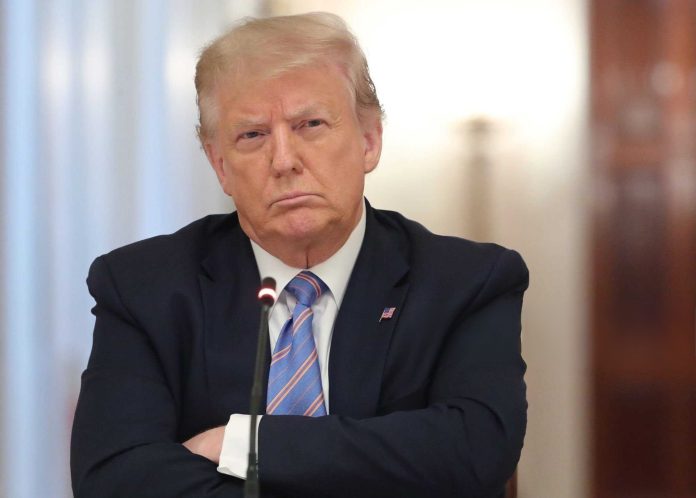Former President Donald Trump recently renewed his threats to remove Jerome Powell as chair of the Federal Reserve, raising serious questions about the independence of America’s central bank. Trump expressed his dissatisfaction with Powell’s handling of interest rates, claiming “Powell’s termination cannot come fast enough!” This has sparked concern among economists and market watchers about the potential consequences of such an unprecedented move.
The clash over interest rates
At the heart of Trump’s criticism is his belief that interest rates should be lower. Despite inflation falling steadily from its 9.1% peak in 2022 to 2.4% recently—close to the Fed’s 2% target—Trump wants rates cut further. He has claimed “we have essentially no inflation” and accused Powell of “playing politics” with monetary policy.
This perspective oversimplifies the Federal Reserve’s role in managing the economy. While the Fed controls short-term interest rates directly, it has only indirect influence over the longer-term rates that affect mortgages and other consumer loans. The Fed has already cut rates three times in recent months as inflation has moderated.
Can a president actually fire the Fed chair?
The legal framework has historically protected the Fed chair from direct political interference. Powell himself has made this clear, stating “we’re not removable except for cause” and that “our independence is a matter of law.” He has indicated he would not step down if asked to resign.
Powell, who was initially nominated by Trump in 2017 and reappointed by President Biden in 2022, stands on solid legal ground. However, a case currently before the Supreme Court could potentially make it easier for a president to fire top officials at independent agencies. Still, Powell has noted this case might not apply to the Federal Reserve, given that courts have previously carved out exceptions for the central bank.
The potential market fallout
If Trump were to succeed in removing Powell, the consequences could be severe and far-reaching. Financial markets typically respond negatively to threats against central bank independence, as such moves create uncertainty about monetary policy being driven by political considerations rather than economic fundamentals.
The fallout would likely include significant hits to global stock and bond markets. Ironically, the dollar could weaken, and interest rates might paradoxically rise—not fall—as investors demand higher returns to compensate for increased policy uncertainty.
The economic stakes
The Federal Reserve’s dual mandate to maintain price stability and maximize employment requires a delicate balancing act free from political pressure. Political interference in Fed decisions could undermine confidence in the U.S. economy and financial system.
Economic experts warn that politically-motivated interest rate cuts could trigger a resurgence in inflation, requiring even more aggressive rate hikes later on—potentially causing more economic damage in the long run. The credibility of the Federal Reserve, built over decades, could be severely compromised.
Mixed signals from the Trump camp
Despite Trump’s recent threats, there have been contradictory signals from his team. In a campaign interview earlier this year, Trump suggested he would allow Powell to serve out his term, which ends in May 2026. Additionally, Trump’s top economic adviser, Kevin Hassett, has stated that “there’s not going to be any political coercion over the Fed, for sure.”
These conflicting messages add another layer of uncertainty to an already complex situation.
A precedent-shattering scenario
The independence of the Federal Reserve has been a cornerstone of U.S. economic policy for generations. If a president were to successfully remove a Fed chair for disagreements over monetary policy rather than misconduct, it would shatter precedent and fundamentally transform the relationship between the White House and the central bank.
Such a move would not only impact immediate economic conditions but could permanently alter how monetary policy decisions are made—with implications for everything from mortgage rates to retirement savings and the global standing of the dollar as a reserve currency.
As this situation unfolds, market participants, economists, and everyday Americans will be watching closely to see whether long-established boundaries between politics and monetary policy will hold firm or give way to a new, more politically influenced era at the Federal Reserve.
What you should do now
President Trump has already roiled world markets with tariffs. If he follows through with these threats against Chairman Powell, the world economy will be further rocked.
That’s why you should always have at least some money in gold. Gold tends to react well when other investments are falling, or when there’s political turmoil brewing. Like now.
One place to find it: Anthem Gold Group.
Anthem Gold is committed to helping investors protect their wealth and retirement with physical precious metals. They offer gold, silver, platinum and palladium coins and bars delivered directly to your home. Plus, enjoy up to $25,000 in complimentary gold and silver, along with waived IRA storage fees for up to 10 years!
Even Brian Kilmeade from Fox News trusts Anthem Gold to protect your cash and retirement accounts with physical gold and silver. Anthem Gold’s minimum to get started is $10,000.
Gold has been hitting record highs. Get some info right now.




